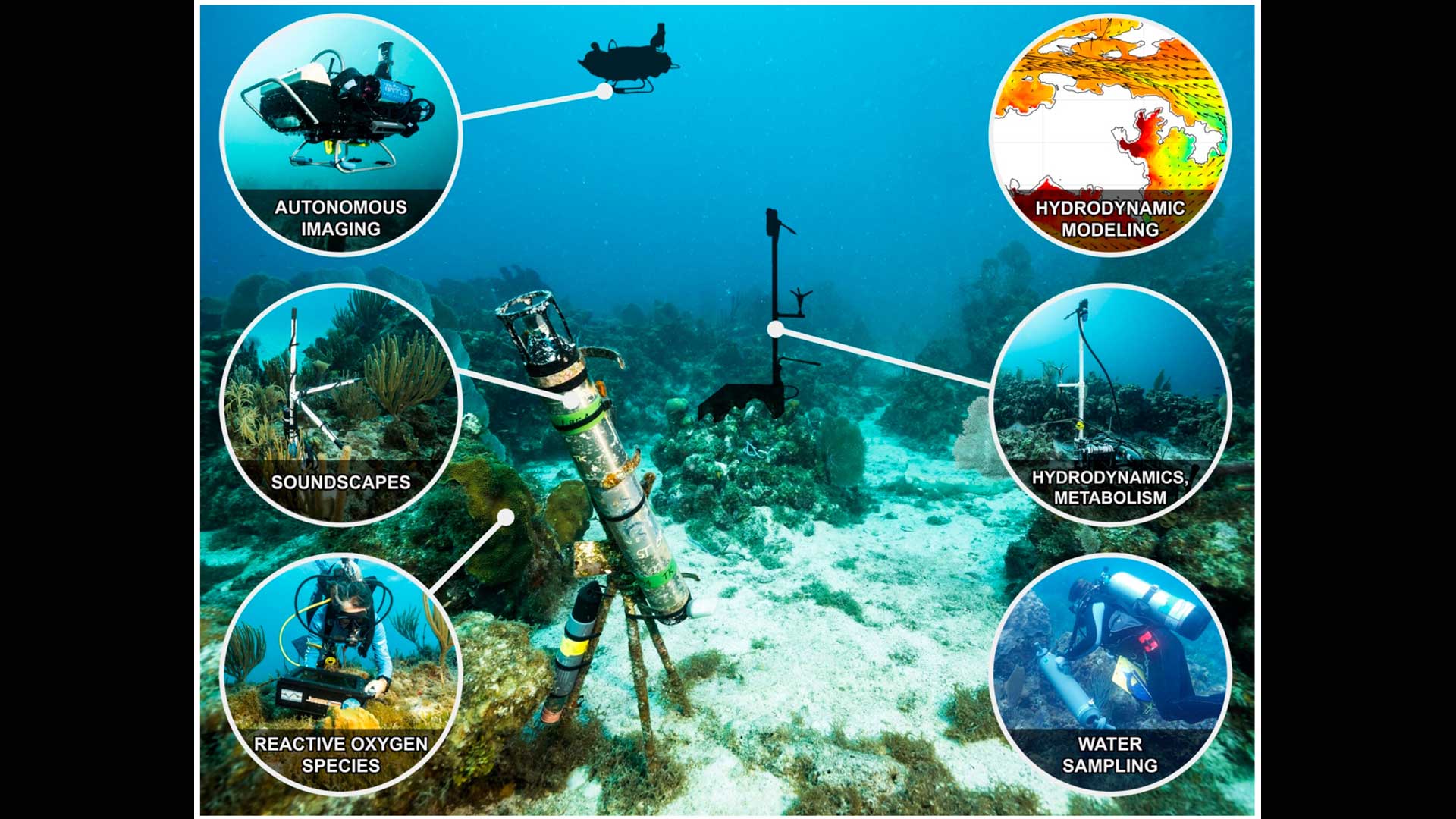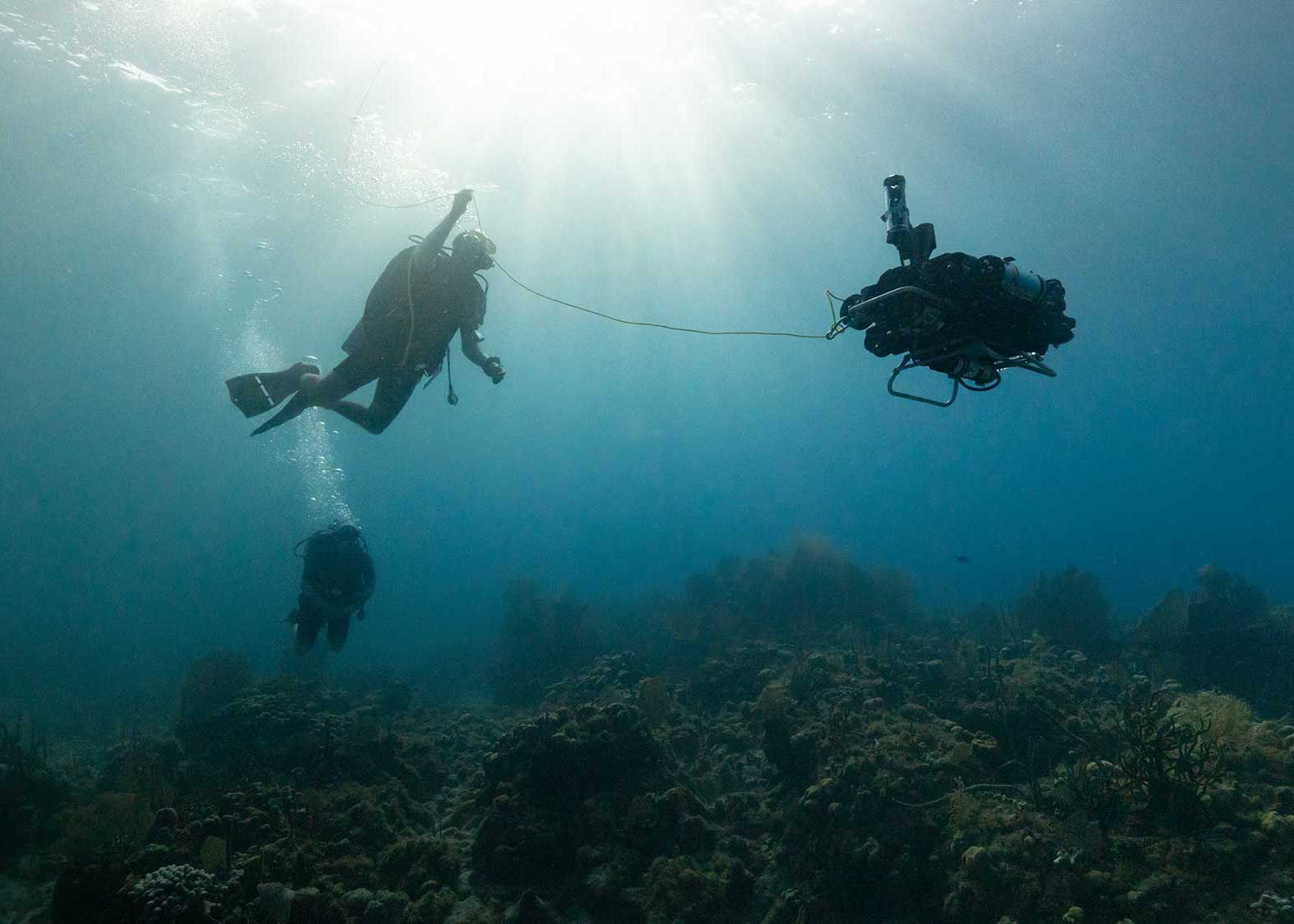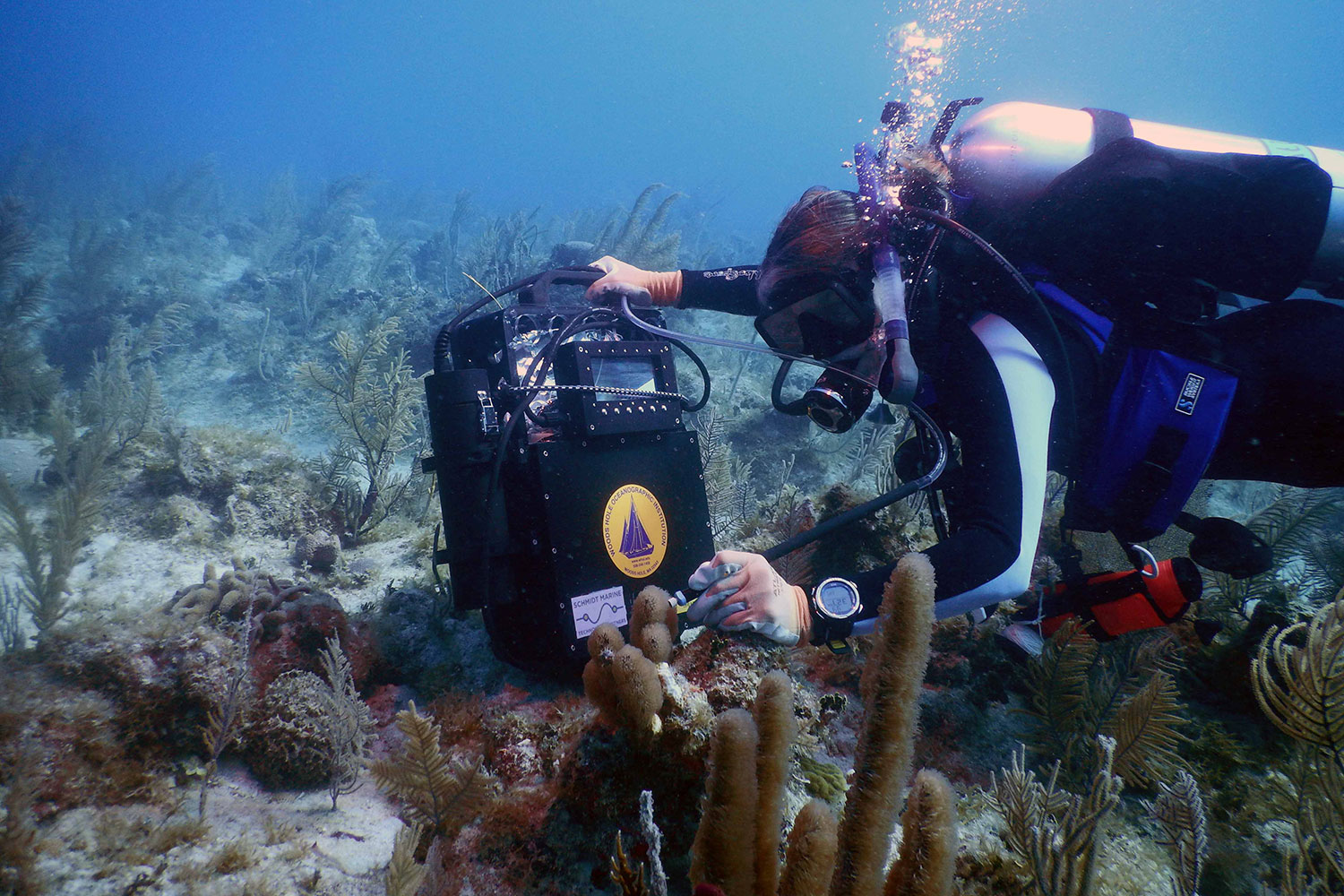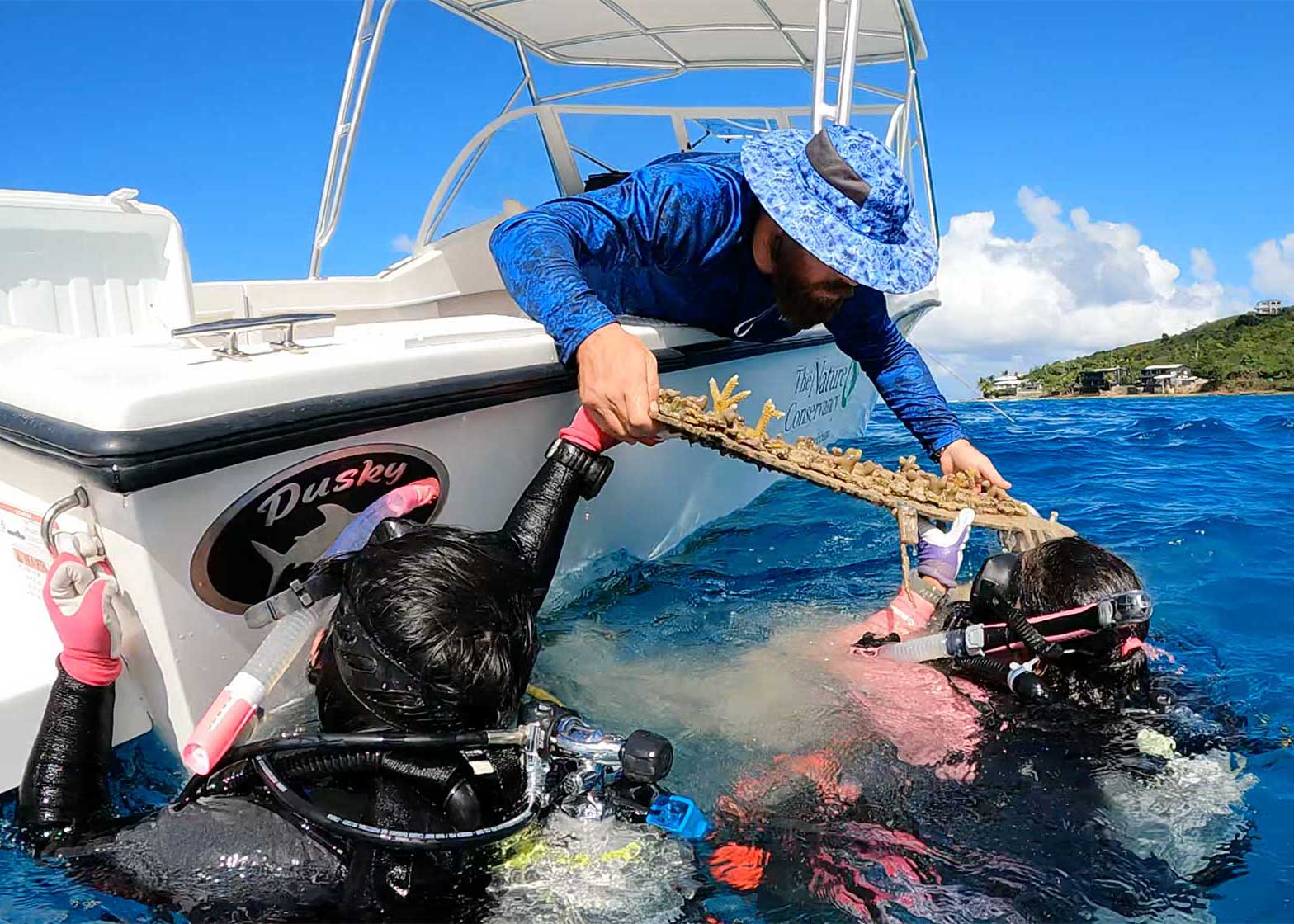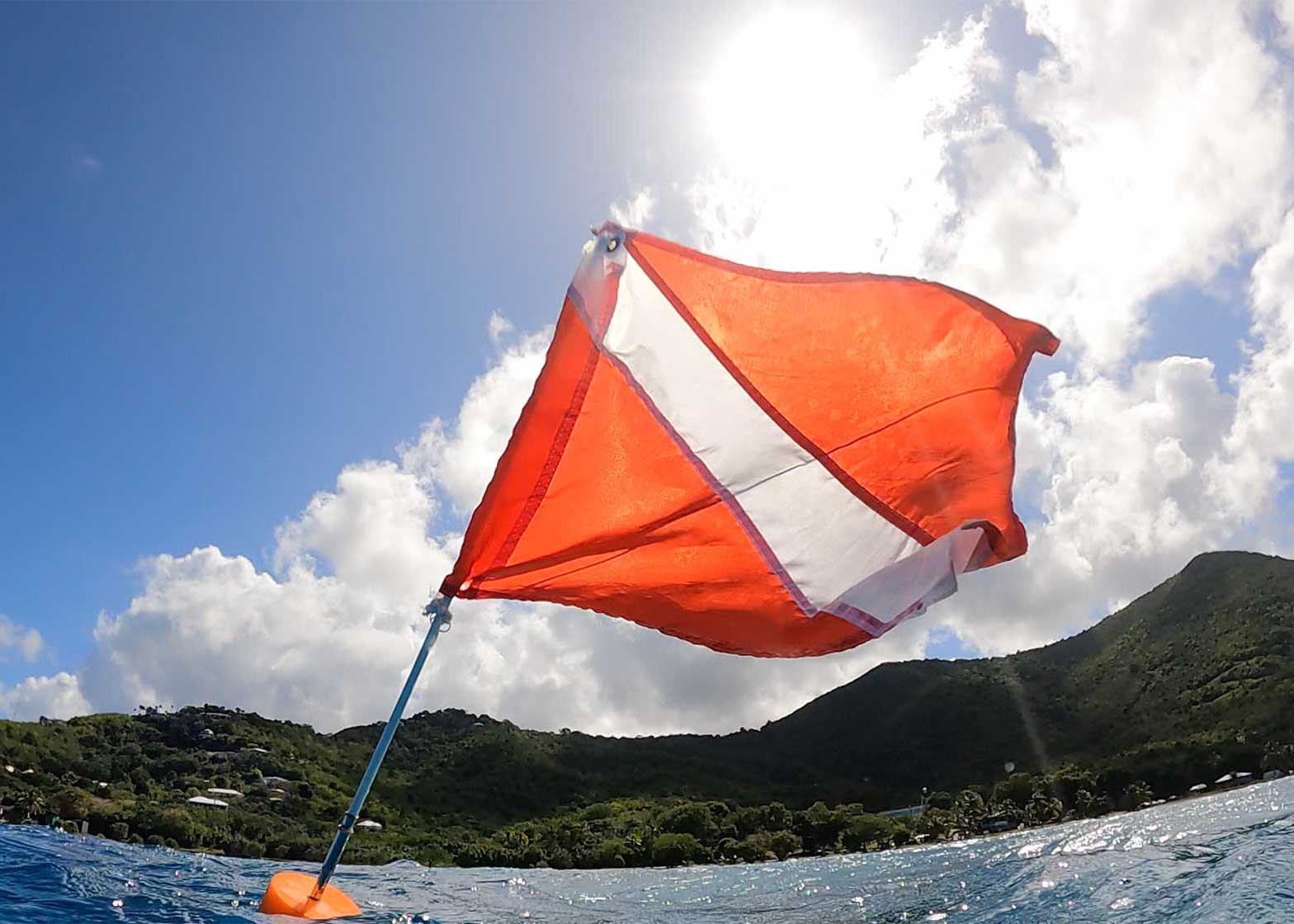About WHOI's
Reef Solutions Initiative
About WHOI's
Reef Solutions Initiative
The WHOI Reef Solutions Initiative is a group of scientists and engineers who are focused on finding solutions to the coral reef crisis. We turn transformative science and innovative technology into solutions designed to save reefs. Our convergence research approach is integrating knowledge, expertise, and methods across disciplines to develop and apply novel technologies and experimental frameworks to enable solutions that will help save coral reefs and the coastal communities that reefs protect and support.
Coral Reefs are in crisis
Coral reefs also among the most biodiverse and economically important part of the ocean. But over 25% of coral reefs have vanished in the last 30 years and 67% of our remaining coral reefs are on their way to extinction. In many cases, human activities are threatening their existence.
Urgent need for innovative science
Today, the health of coral reefs is assessed by divers through visual surveys. But the visual symptoms corals display provide no information about the underlying mechanisms stressing reefs and the ecosystems they support. New approaches are needed to provide early indicators of the onset of coral and ecosystem stress. Without advancing the state of coral reef science, any effort of saving reefs will not be effective, efficient, or sustainable.
If we do nothing to stop their current state of decline, most of our reefs will be destroyed by 2050. That’s why the Reef Solutions Initiative team feels such a sense of urgency.
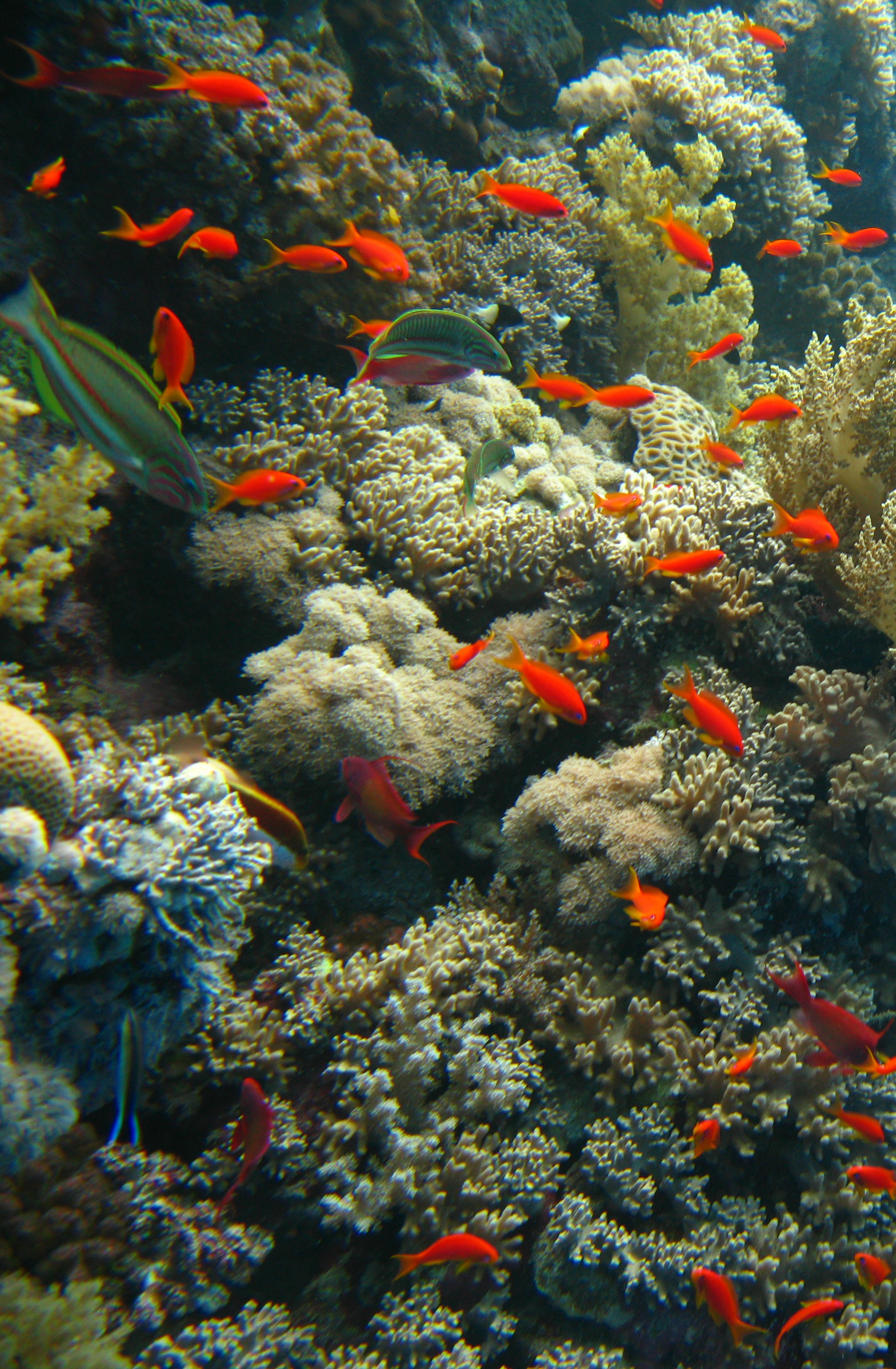
Our approach to coral reef research
The scope and scale of threats facing coral reefs demand new ways of approaching the questions that need to be answered in order to ensure the future of reefs worldwide. That's the conclusion of a paper we published in the journal Environmental Science & Technology and it serves as the foundation of the philosophy that guides our work.
Technology-driven reef monitoring
Goals
To outfit specific reefs with proven and newly developed technologies to monitor reef dynamics on unprecedented scales.
Strategy
Scientists and engineers are working together to develop innovative, scalable monitoring systems and strategies. For example, WHOI robotics engineer Yogi Girdhar is working to develop “smart” robots with vision-guided capabilities to observe and sample coral reefs on greater spatial and temporal scales.
Outcomes
Obtain key insights into how corals and other reef organisms function and respond to their environment. Enhance understanding of the features of a healthy reef system. Create scalable monitoring solutions for reefs, including restored reefs.
Advancing reef stress and health diagnosis
Goals
To improve diagnostic capabilities for reef stress and develop new treatments to enhance reef health and resilience.
Strategy
Collaborations among interdisciplinary scientists and engineers are developing new tools to diagnose stress on reefs. One novel, transformative technology focused on coral stress is DISCO (DIver-operated Submersible Chemiluminescent sensOr), led by WHOI Senior Scientist Colleen Hansel and developed at WHOI. DISCO measures superoxide, a form of reactive oxygen that may provide a key diagnostic indicator of coral health.
Outcomes
Inform intervention strategies and reveal mechanisms and triggers that cause stress, disease and decline of coral health. To develop treatment options (e.g. probiotics, bleaching treatment) to promote coral resilience.
Advancing reef stress and health diagnosis
Goals
To improve diagnostic capabilities for reef stress and develop new treatments to enhance reef health and resilience.
Strategy
Collaborations among interdisciplinary scientists and engineers are developing new tools to diagnose stress on reefs. One novel, transformative technology focused on coral stress is DISCO (DIver-operated Submersible Chemiluminescent sensOr), led by WHOI Senior Scientist Colleen Hansel and developed at WHOI. DISCO measures superoxide, a form of reactive oxygen that may provide a key diagnostic indicator of coral health.
Outcomes
Inform intervention strategies and reveal mechanisms and triggers that cause stress, disease and decline of coral health. To develop treatment options (e.g. probiotics, bleaching treatment) to promote coral resilience.
Rebuilding and restoring reefs
Goals
To apply oceanographic expertise to determine locations for restoration and develop technology-aided replanting efforts for corals and other reef life. To develop science-driven solutions to attract reef life able to survive future climate conditions.
Strategy
Corals and other reef life use cues to determine the best reef habitat to settle in for their lifetime. WHOI scientists have shown that coral larvae are attracted to reefs that sound healthy, enabling reefs with abundant fish to continue to attract new corals. The team will develop intervention strategies using sound and info-chemical cues to help corals, fish and other reef life repopulate damaged or degraded reefs.
Outcomes
Significantly improve the success rate of coral restoration efforts and create reef communities resilient to ocean warming.
Solutions for action
Goals
To apply new, engaging ways of communicating to the public and to decision-makers about the importance of coral reefs. To advocate for the fundamental advances in technological development needed to study, monitor, and restore these ecosystems in order to effect rapid, positive change in their health and resilience.
Strategy
Of particular interest to policymakers and the public will be the team’s focus on developing tools to diagnose the health of corals, which could enable reef health monitoring programs to inform policymakers of the status of reef health and allow for informed intervention. Results will be made publicly available (locally and online), thus allowing the public to engage with the science and check the health status of specific coral reefs (as one may check for beach closures due to a harmful algal bloom).
Outcomes
Empower the public and policymakers to take meaningful action in support of coral reef protection and restoration.
Solutions for action
Goals
To apply new, engaging ways of communicating to the public and to decision-makers about the importance of coral reefs. To advocate for the fundamental advances in technological development needed to study, monitor, and restore these ecosystems in order to effect rapid, positive change in their health and resilience.
Strategy
Of particular interest to policymakers and the public will be the team’s focus on developing tools to diagnose the health of corals, which could enable reef health monitoring programs to inform policymakers of the status of reef health and allow for informed intervention. Results will be made publicly available (locally and online), thus allowing the public to engage with the science and check the health status of specific coral reefs (as one may check for beach closures due to a harmful algal bloom).
Outcomes
Empower the public and policymakers to take meaningful action in support of coral reef protection and restoration.


